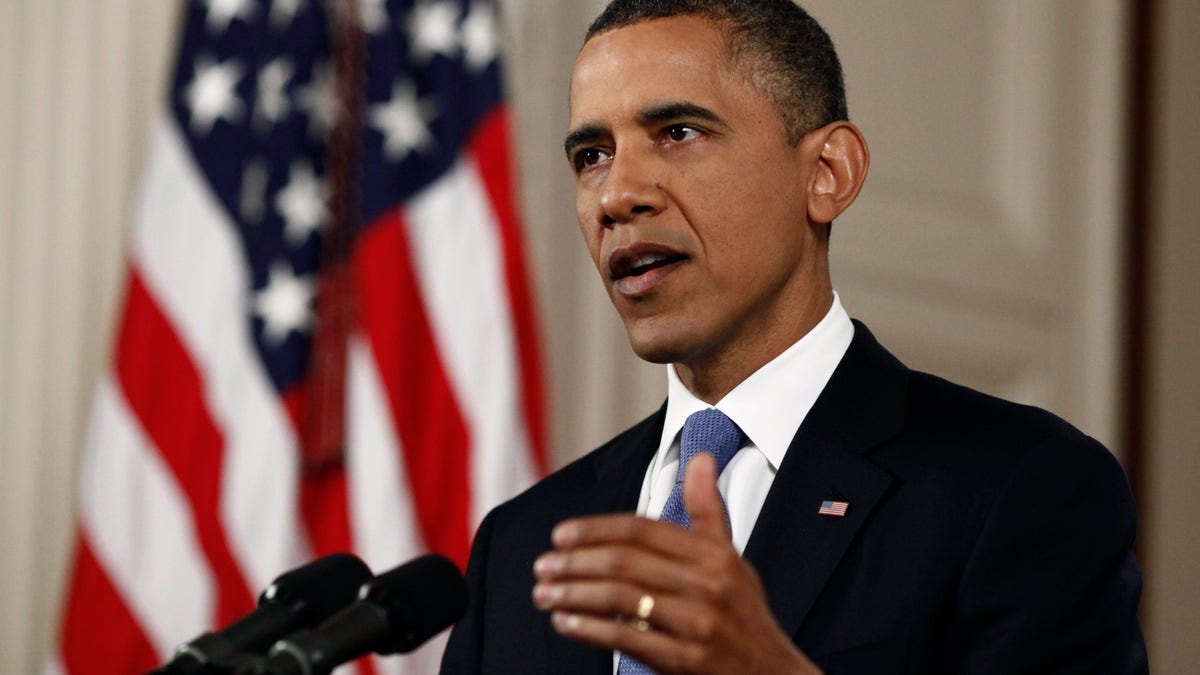
June 28, 2012: President Barack Obama speaks in the East Room of the White House in Washington after the Supreme Court ruled on his health care legislation. (AP2012)
Like all practicing physicians (and medical correspondents), I was glued to the news last Thursday morning at 10 am ET when the US Supreme Court via some questionable fancy legal footwork allowed ObamaCare to survive. Like many of my medical brethren, I was deeply disappointed by the outcome.
But ultimately I am not concerned about America’s doctors; we will survive even if our paperwork continues to pile up, our income continues to decline, and our waiting rooms overflow well beyond capacity. We may feel like quitting but most of us will soldier on, continuing to work even as the new Affordable Care Act committees regulate and restrict us to the point of impotence.
Most of us have no choice; we are super-specialized and we don’t know how to do much of anything else.
We will survive, but what about you, America’s patients?
I am worried that the more than 250 million of you who already have health insurance will see the quality of care you receive diminish greatly. Doctors will weather the storm of ObamaCare even if we have to see a patient every five minutes and spend most of our time seeking test and treatment approvals, but what about you? How will you feel when you hear about a brand new cure only to find out that your insurance won’t cover it?
You, the patient, will have to get used to less access to real health care solutions, fewer approvals for the very latest, personalized, genetic-based cancer treatment or surgical technology that could save your life.
One of the reasons your doctor isn’t happy is because under ObamaCare he or she will bear the brunt of explaining how come your ever rising premiums are buying you less than they did before.
Gone will be the ability to pay out of pocket and receive a tax break for higher quality care. Flexible Spending Accounts will shrink to a maximum of $2,500 and you will only be able to deduct a medical expense from your taxes if it exceeds a whopping 10 percent of your gross income for the year.
With fewer cash payments, lower fees, and more red tape, no wonder your doctor isn’t happy. Recent surveys by Deloitte, sermo.com, and most recently Jackson Health Care reveal that a majority of doctors believe the Affordable Care Act will have a negative impact on their practices. Earlier this month the Doctor Patient Medical Association released a survey of doctors that showed that 90% believe that the health care system is on the wrong track.
Don’t get me wrong, covering you regardless of pre-existing condition with no possibility of your insurance dropping you when you are sick and no co-pay for preventive services are attractive features of ObamaCare. But these expensive features have to be paid for with a "rob Peter to pay Paul" concept that comprehensive insurance is famous for.
You see, the ACA mandates the kind of expensive insurance that allows you to go to the doctor too easily; if insurance pays for people when they just want reassurance for a palpitation or an upper respiratory infection, it won’t have enough left to pay for expensive state-of-the-art treatment when a person is very ill.
Over the last few years I have diagnosed three cases of curable lung cancer using a screening Chest CT that I fear an Independent Medicare Advisory Board (created by ObamaCare) will deny in the future. I have also witnessed two patients waking from comas and walking out of the hospital long after ObamaCare’s new committees would likely recommend that their breathing tubes be pulled. I am concerned that ObamaCare rulings from on high will interfere with the art of medicine down here in the trenches.
It is one thing to provide a catastrophic insurance for everyone in case they end up in an emergency room, it is quite another to mandate the kind of insurance that restricts some services while blanketly approving others.
ObamaCare will cause your premiums to soar. ObamaCare promises to increase your access to health care but it may actually decrease it because your doctor will no longer have as much time for you. The growing numbers of insured will have difficulty finding a doctor. The current doctor shortage will be compounded by all the doctors who restrict the insurances they accept, beginning with Medicaid and Medicare.
Many physicians chose medicine, in the first place, because of the old-fashioned joy of taking care of people. I am afraid that joy is now in jeopardy.
My patients are asking me the same question that patients all over the country are asking their doctors this week. "What do we do now?" Unfortunately, my answer, "I will be there for you no matter what," may not apply to all doctors.








































